We’ve been through a lot together, Marvel Studios and I. The end of two presidencies, the changing face of how summer blockbusters are formulated – everyone needs a shared universe these days, after all. But for all that time and for all those movies, little has changed at the core of most Marvel Cinematic Universe films.
Hollywood has had an ongoing and regrettable history of playing it as safe as can be, with the idea that the only bankable stars are, with some rare exception, one default setting – and that’s something that I think has nagged Kevin Feige for some time in his otherwise pretty miraculous tenure at head of Marvel Studios. In a pretty conservative environment, to some degree Marvel is about as reserved as it gets, despite how visionary these interconnected films are on paper. They have increasingly diverse casts (see: Spider-Man: Homecoming and others), but they always center on the heroes journey of a very specific type of character, both in-story and in their real world context. When I reviewed Doctor Strange last year, I believe I mentioned at some point Marvel’s “Han Solo problem”, in that a large swath of their lead heroes have a very snarky, rogue-ish quality to them (yes, Steve Rogers is the exception). These heroes also undergo pretty much the same heroes journey, where they arrive as flawed men, but carry around the weight of destiny until they eventually fulfill it. They’re also all white guys. After a while the tedium with this consistent return to the same well really does start to wear one down.
Black Panther, much like last year’s Wonder Woman, provides a bit of a new spark. Though while Patty Jenkins’ big superhero standout last year was more effective as a rallying cry than any real innovation on-screen, Marvel has turned the keys over to Ryan Coogler, and in so doing, he gets an opportunity to turn their formula inside out and in some ways produce what is surely their most vital origin picture.
Coogler’s debut feature with the studio picks up where Captain America: Civil War left us, with T’Challa (Chadwick Boseman) taking over the reign of Wakanda after the murder of his father at the hands of Zemo. After being crowned king, his advisers inform him that Ulysses Klaue (Andy Serkis) will be making a black market deal selling Vibranium to a North American buyer in South Korea. With the assistance of his tech-wiz sister Shuri (Letitia Wright), spy ex-girlfriend Nakia (Lupita Nyong’o), and the General of the Dora Milaje, Okoye (Danai Gurira), the hands-on monarch heads out on a very James Bondian-style mission to bring the newly empowered Klaue, who has long been a wanted fugitive in Wakanda, to justice. But what T’Challa doesn’t know is that the villain is in league with a mysterious young assassin named Erik (Michael B. Jordan) – who has long-planned for a confrontation with the king, and may very well destroy everything the hidden nation has built.
Speaking of that nation, let’s start there. One of the most striking narrative backbones of Black Panther is how well conceived Wakanda is as a living, breathing place. While Marvel and other studio’s superhero films have produced fictional fantasy lands before, they’ve typically been not much more than paper-thin excuses for very good actors to wear a variety of garish costumes, but there’s little else there of real worth. On the other hand, this afro-futurist nation is altogether something different. Granted, Wakanda is benefited by the sheer amount of time we spend there (80% of Black Panther is set within its borders), but it’s the first comic-originated land that has a sense of place and scale. I can’t tell you the first thing about the customs of Asgard beyond their group dinner practices, but within the first 20 minutes of Black Panther, we meet Wakanda’s various tribes, their rites of passage, and the technology that’s so woven into their lives it’s even sewn into the very clothes they wear. If the film did nothing else, its formulation of a setting so rich is something to behold.
One of the key focal points of T’Challa and what sets him apart from the rest of the Infinity War gang are the relationships that come built-in before the first act even kicks off. Every important aspect of his life is driven by a woman. The protector of his body is Okoye, who is one of the fiercest characters within the Marvel canon and advises him in matters of international import. The keeper of his heart is Nakia, who is his undercover operative and a source of conscience – while fortunately also not being the thankless model of standard love interest. In terms of his brain, there’s Shuri, who is basically the Q to his 007, providing new exciting tech, suit upgrades, and occasionally hopping into the action in an incredibly fun virtual fashion, while his mother, Ramondo (played by the always incredible Angela Bassett) is his source of inspiration and strength. In a genre dominated by how women are driven to decisions in order to support the men at the center of things, it’s incredible to see an example of a man completely shaped by the women who have made him. Frankly, they are the only thing that keeps him alive. There’s a form of compassion and tenderness within T’Challa that sets him apart from the brusquer, usual Marvel protagonist, perhaps informed by those very sisterly ties. In a sense, he’s more vulnerable, and more human.
On the other side of the coin is Erik, or Killmonger as he’s known. I can say this with full confidence he is the best villain Marvel has introduced in their canon. Yes, better than Loki. His layered, nuanced threat is accomplished not only through a stunning performance by Jordan, but also in how he is weaved into the grander themes of the story. This is a tale of fathers and sons and the legacy the former leaves for the latter, and while that shapes T’Challa in one direction, it takes Erik somewhere completely different. He is brutally vicious via a lifetime of being treated as a human weapon, but at the same time, he is honed by grief. There’s one particular moment in Black Panther that really drills down the latter notion, and I think it might be the most artful sequence this studio has ever produced. There are even brief beats where you find yourself even sizing up his rationale and thinking…”hey, perhaps this guy does have a point”, before you’re snapped back to reality. There is a sense of density here that I’m not sure I’ve ever felt with a comic book antagonist, certainly not in recent memory. If Coogler and Jordan want to keep making films together until the end of time, I will gladly support them in that mission.
It’s a moving tale, well told, and more accomplished structurally and thematically than any of Marvel’s “first films”, but it does come with a few quibbles that fall under the usual pains of the studio. The CG is a bit rough-hewed, with a few floating head moments that pull you out momentarily, and one too many battles where the Panther himself falls victim to the rubber-band man issues that always plague the Spider-Man movies. There’s just something about a lithe, acrobatic superhero that Hollywood just can’t quite crack the code on yet. And, like almost every film within the MCU, the third act is too big and too much all at once, with a need to make sure the toys are put back on the shelf; whereas it’s hard to shake the feeling that Coogler had more of a story to tell here, rather than wrapping it all up in about 30 minutes. Still, there’s a pair of final scenes that make that sacrifice easily worthwhile, especially when one of the protagonists delivers a very relevant last bit of dialogue that hammers the entire mission statement home.
While we can rue the usual misgivings inherent in these films, those minor flaws are dwarfed by the staggering historical importance of Black Panther: a major blockbuster courting all demographics almost entirely made up of black actors and creators. This is a cinematic tidal wave, that between its well-deserved critical plaudits and what is looking to be a rapturous run at the box office, has the potential to further change how these projects are conceived and who ends up behind and in front of the camera. This is a piece of history you really want to be a part of.


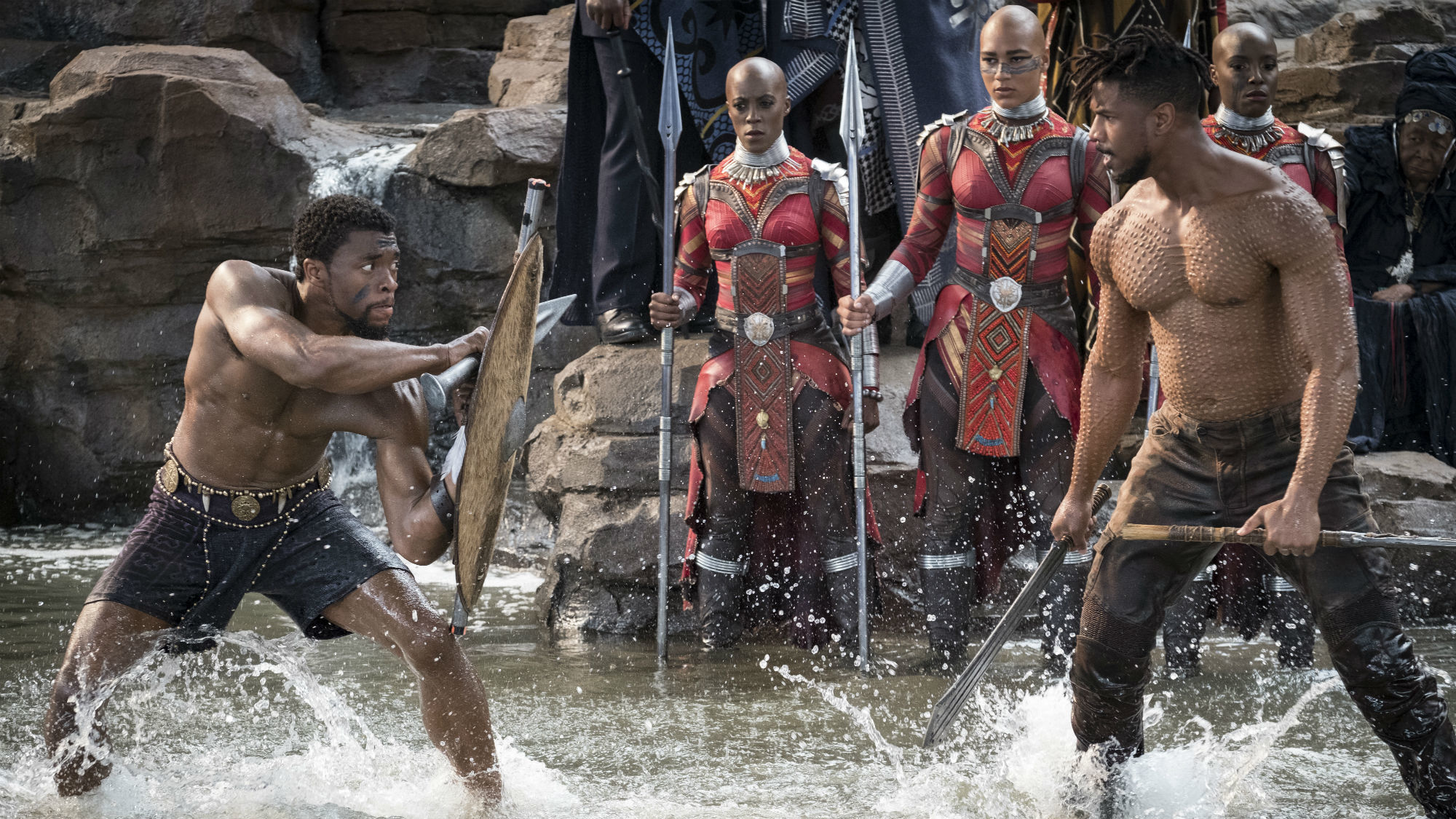
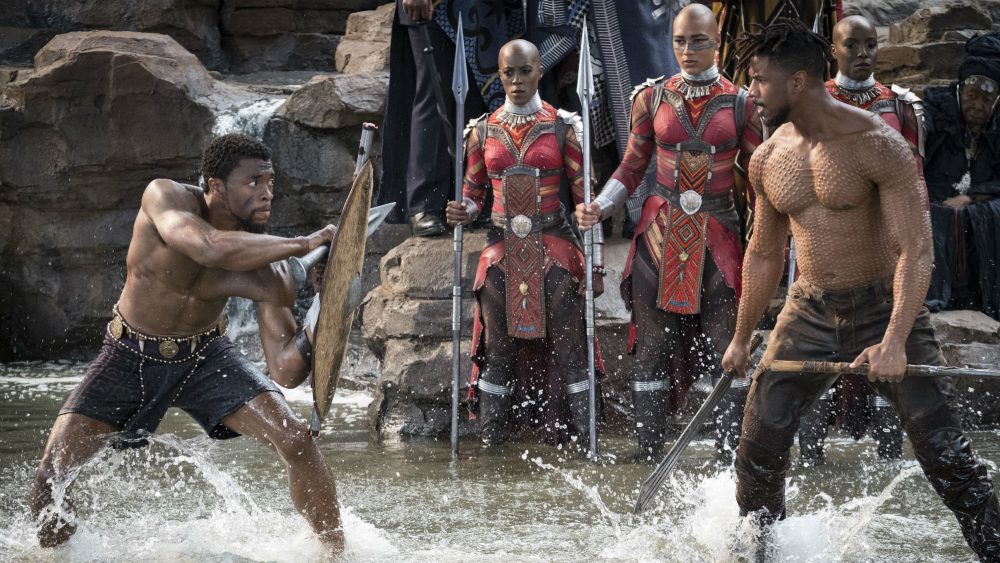
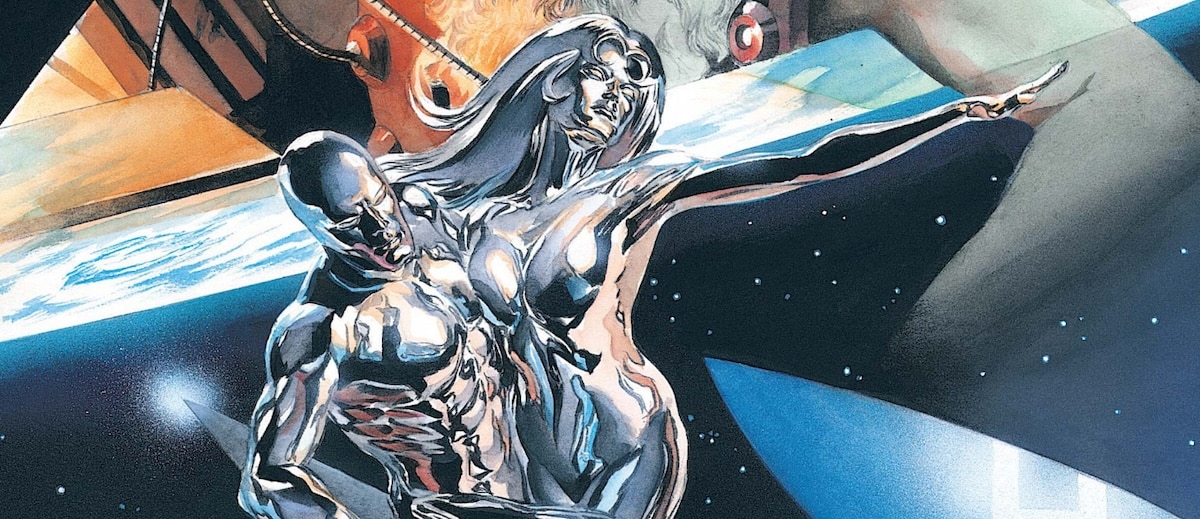
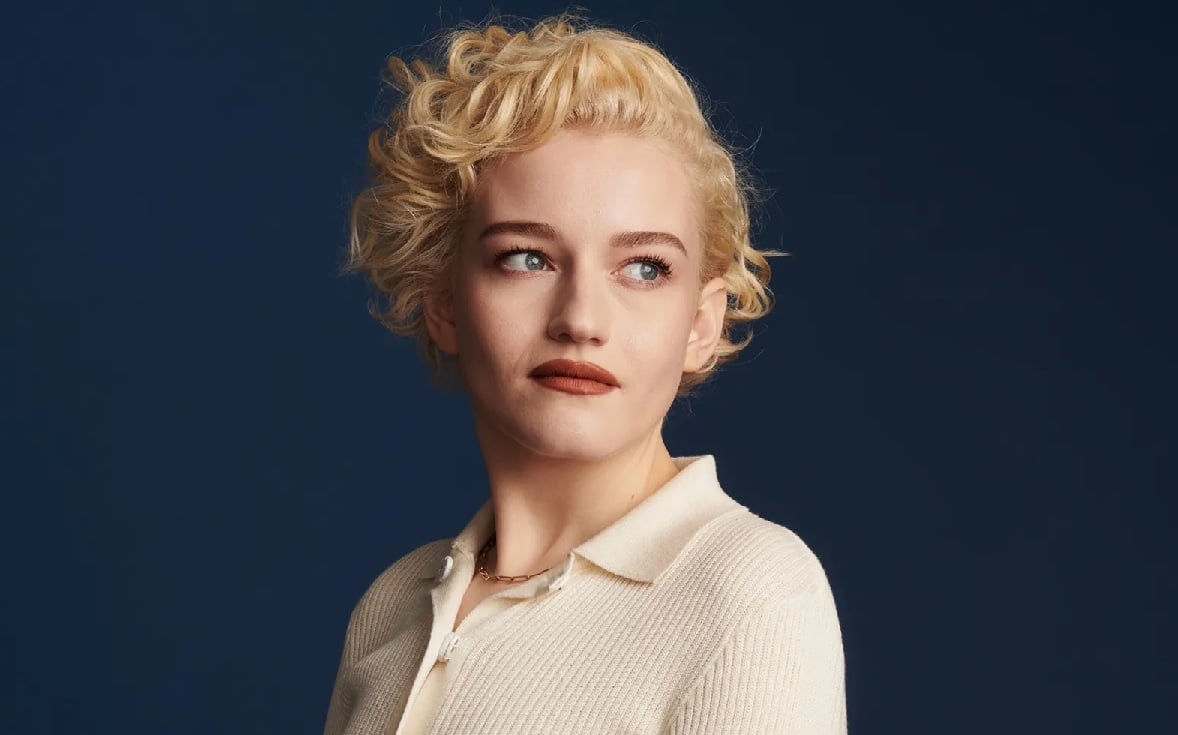
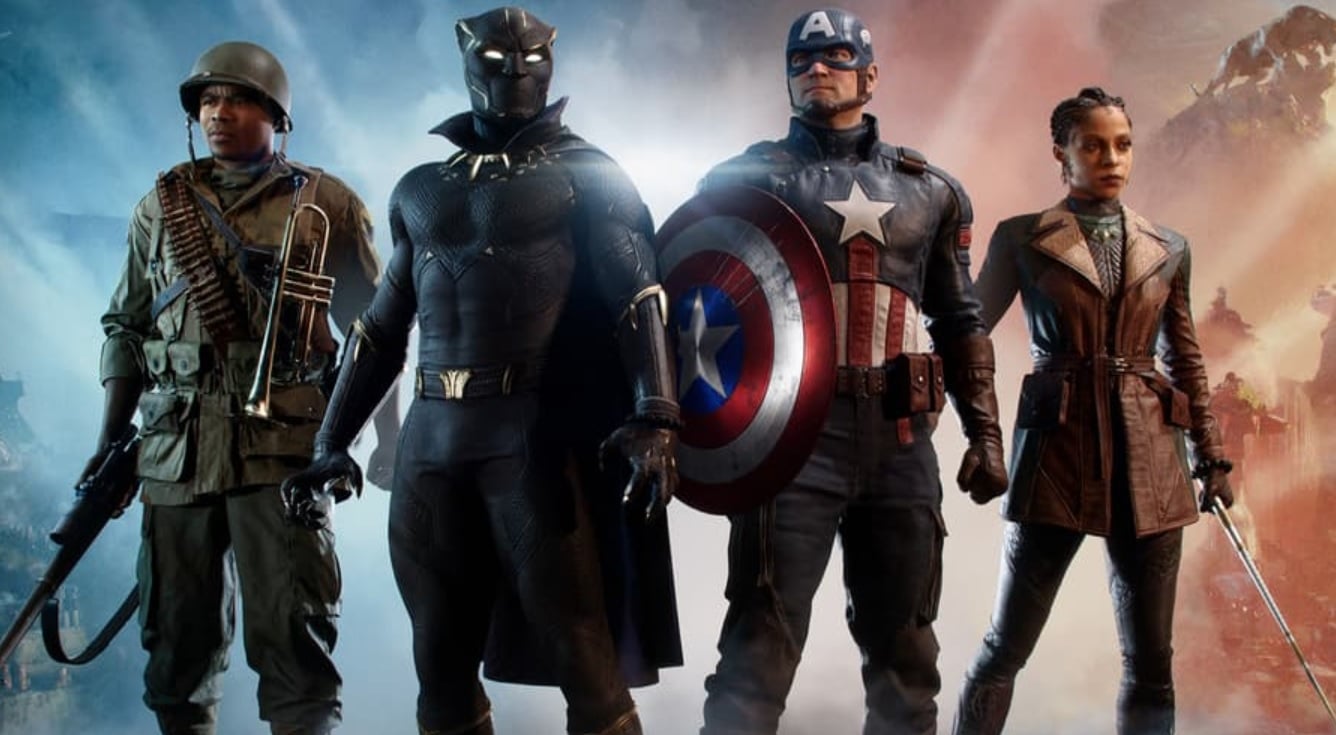



It felt like a huge scene or two with Killmonger was cut from the final film. He unveils his plan way too abruptly. It’s reasonable motivation, but we don’t ever see how it’s motivation that personally affects him.
From the four-star review at rogerebert.com:
Black Panther is “Marvel’s most mature offering to date. It’s also its most political, a film completely unafraid to alienate certain factions of the Marvel base. It’s doing a great job upsetting folks infected with the Fear of a Black Planet on Twitter, to be sure.”
https://www.rogerebert.com/reviews/black-panther-2018
Waiting for the comments that “forced diversity” is ruining Marvel movies.
Comments are closed.